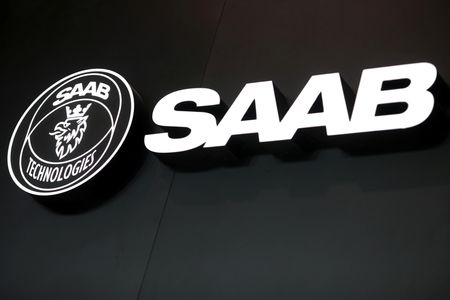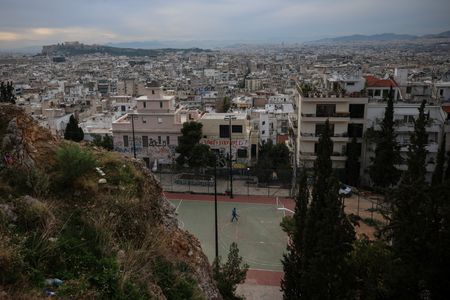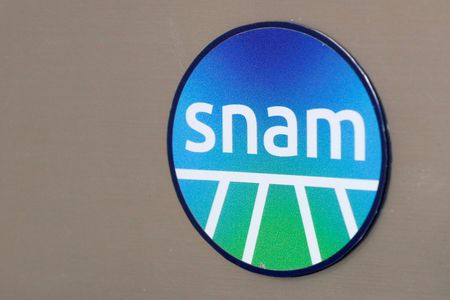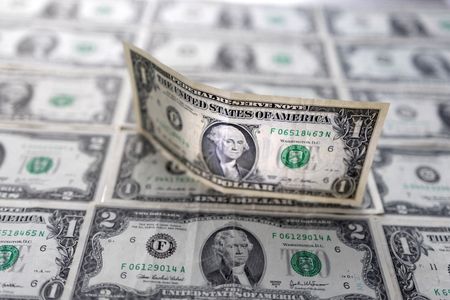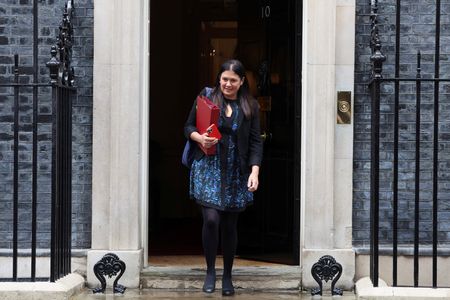By Timothy Gardner, Shariq Khan and Robert Harvey
WASHINGTON/NEW YORK/LONDON (Reuters) -The Trump administration on Friday gave clearance to potential buyers to talk to Russia’s Lukoil about buying its foreign assets and allowed business dealings with Lukoil’s Burgas refinery after Bulgaria moved to seize the plant.
The U.S. last month imposed sanctions on Russia’s two biggest oil companies, Lukoil and Rosneft, for their help in financing Russia’s nearly four-year war in Ukraine. Lukoil has faced growing disruptions to its foreign assets, which account for about 0.5% of global oil production, since the sanctions were imposed.
The Treasury Department on Friday issued a set of licenses, one of which authorized companies to talk to Lukoil through December 13 about buying its foreign assets.
U.S. WILL ONLY AUTHORIZE DEALS IF ASSETS SEVER LUKOIL TIES
The U.S. will only authorize a transaction involving the sale of those assets if it completely severs ties with Lukoil and if the funds from that sale are placed into an escrow account that Lukoil cannot access as long as it is sanctioned.
The Treasury Department also allowed transactions until April 29, 2026, involving Lukoil entities in Bulgaria.
The Bulgaria Energy Ministry said in a statement that the U.S. move “is a direct result of the intensive actions, negotiations, and diplomatic talks we have been conducting since day one to ensure stability, predictability, and peace of mind for Bulgarian citizens and businesses.”
Britain’s Office of Financial Sanctions Implementation has also granted licenses for Lukoil Bulgaria EOOD and Lukoil Neftochim Burgas AD. The latter manages the country’s only oil refinery at Burgas.
“These authorizations support the energy security of our partners and allies without benefiting the Russian government,” a Treasury spokesperson said.
Treasury also issued a license to allow transactions with the Caspian Pipeline Consortium and Tengizchevroil projects even if they involve the sanctioned oil companies.
CPC is a pipeline bringing more than 1.6 million barrels per day of crude, or 1.5% of global oil, from Kazakhstan’s oil fields developed by U.S. and EU majors Chevron, Exxon Mobil, Eni, Shell, TotalEnergies and Lukoil. It crosses Russian territory and can be fully shut by Moscow if it decides it wants to retaliate against Western sanctions.
BUYER INTEREST IN LUKOIL ASSETS
Reuters reported on Thursday that U.S. private equity firm Carlyle is exploring options to buy Lukoil’s foreign assets, according to sources familiar with the situation. Carlyle was looking to apply for a U.S. license allowing it to buy the assets before beginning due diligence, one of the sources had said.
Analysts had said Carlyle was better suited to get U.S. approval to buy the assets, compared with Swiss commodities trader Gunvor, which had earlier walked away from an agreement with Lukoil after Treasury called the trading house the Kremlin’s “puppet” in a post on social media. Gunvor strongly disagreed with that characterization.
Carlyle declined to comment on Friday.
Other firms around the globe have also been considering bids for parts of the Lukoil empire, Reuters reported on Wednesday. These include Kazakhstan’s state firm KazMunayGas and European oil major Shell, sources said.
Lukoil has three refineries in Europe, as well as stakes in oilfields in Kazakhstan, Uzbekistan, Iraq, Mexico, Ghana, Egypt and Nigeria. It also has hundreds of retail fuel stations around the world, including in the United States.
Lukoil’s international assets are estimated to be worth about $22 billion, based on 2024 filings.
Jeremy Paner, a partner at Hughes and Hubbard law firm and a former Treasury official, said the license that authorizes negotiations with Lukoil allows companies to enter into binding memorandums of understanding and other agreements, but the actual acquisition of the assets must be separately authorized by Treasury through a specific license.
(Reporting by Timothy Gardner, Shariq Khan and Robert Harvey; Additional reporting by Angeliki Koutantou in Sofia; Editing by Dmitry Zhdannikov and Edmund Klamann)


